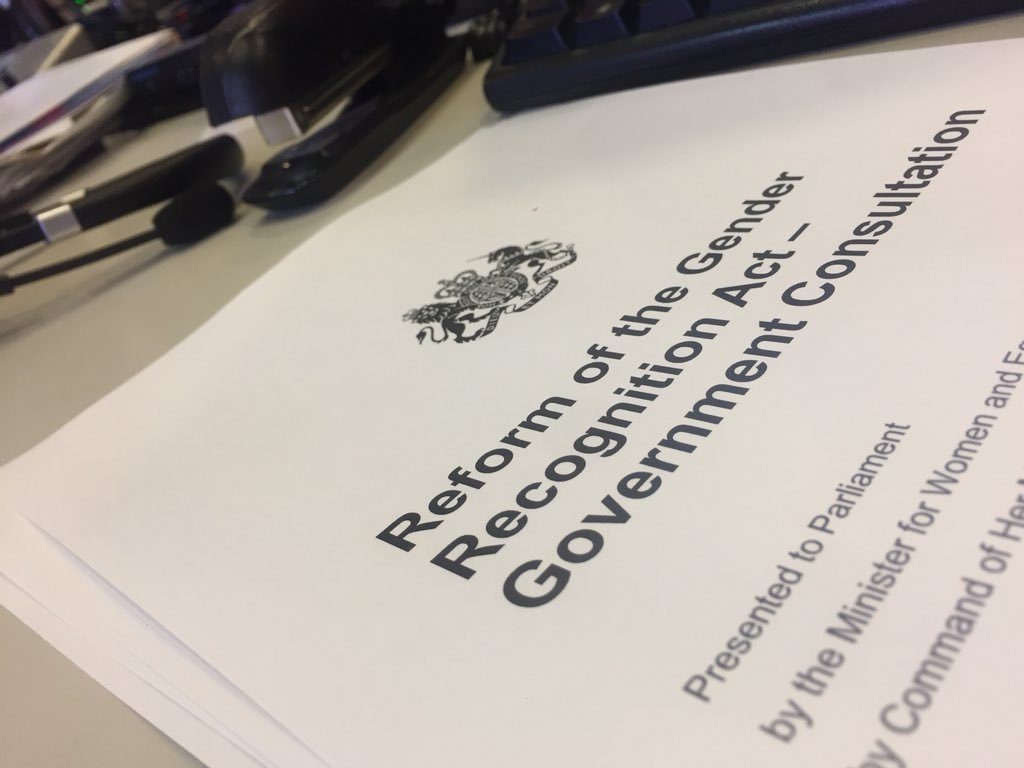UK ministers are ‘unlikely’ to listen to the overwhelming number of people who support legal self-identification for trans folk

UK equalities minister Liz Truss is reportedly preparing a new drive to ban conversion therapy (WIktor Szymanowicz/NurPhoto via Getty Images)
UK ministers are “unlikely” to listen to the thumping calls from overwhelming amounts of the public to reform the Gender Recognition Act and bring about self-identification law, senior Whitehall sources have suggested.
After two years of fits and starts, leaked government plans suggested that crucial legislative reforms which would have made it easier for trans people to change the gender marker on their birth certificates will reportedly be abandoned and replaced with a series of pad-locked policies to better “protect” single-sex spaces.
Insiders said in June that the new legislation will be introduced later this year or early next year. While the 2004 GRA – the bedrock of gender recognition law in the UK – will be vastly untouched, the 2010 Equality Act will, the source said, be altered as part of a rollback of trans rights that some activists equate to Section 28.
Despite 70 per cent backing self-ID for trans people, British government ‘unlikely’ to reform Gender Recognition Act, insider claims.
This major reversal follows a public consultation that netted 100,000 responses. An overwhelming 70 per cent backed self-declaration, but officials felt the results were “skewed by an avalanche of responses generated by trans rights groups”, the source claimed.
This was echoed by a senior source that told the BBC that government leaders fear a public consultation on trans rights was not suitable, with the insider noting the process has been “deeply flawed”.
Moreover, a massive 57 per cent of women surveyed by YouGov for PinkNews agreed that trans people should be able to self-identify as their chosen gender. The poll put to the public found just a slither of 21 per cent of women said they opposed self-ID.

The public consultation on the Gender Recognition Act was answered by over 100,000 people. (Conatus News)
The source said ministers are “unlikely” to back reforms and an announcement this week is now very unlikely. As a result, this leaves a tight stretch of time for ministers to announce plans before parliament breaks for summer recess next Wednesday (July 22).
The main crux of the reforms revolves around making it easier for trans folk to acquire a Gender Recognition Certificate, which allows a trans person to update their gender marker on their birth certificate.
Insiders stressed to the broadcaster that there will be no rollback – the cost of acquiring a GRC has been considered, they said – with some of the drawn-out process, which critics have long slammed as tangled in red tape, will be, in part, streamlined. Specifics were not provided, however.
It caps off a truly dispiriting time for trans folks, where the topsy-turvy fight for equality became a drawn-out battle steeped in transphobic vitriol from some lawmakers and anti-trans groups determined to stymie the life-changing reforms.
Trans folk have, in the meantime, been subjected to rocketing rates of discrimination against them, whether it be the biting words from columnists or transphobia that curdles into violence.
Conservative ministers dithering over the reforms have swelled into purported attacks against women's rights, the source said, with ministers reportedly "feeling the heat" from both LGBT+ activists and anti-trans lobbyists.
Indeed, for trans folks, the wish to carry out a mundane life, blandly using public bathrooms, visiting a GP or trying out discounted clothing in retailers is a dream apparently too much to be asked.

